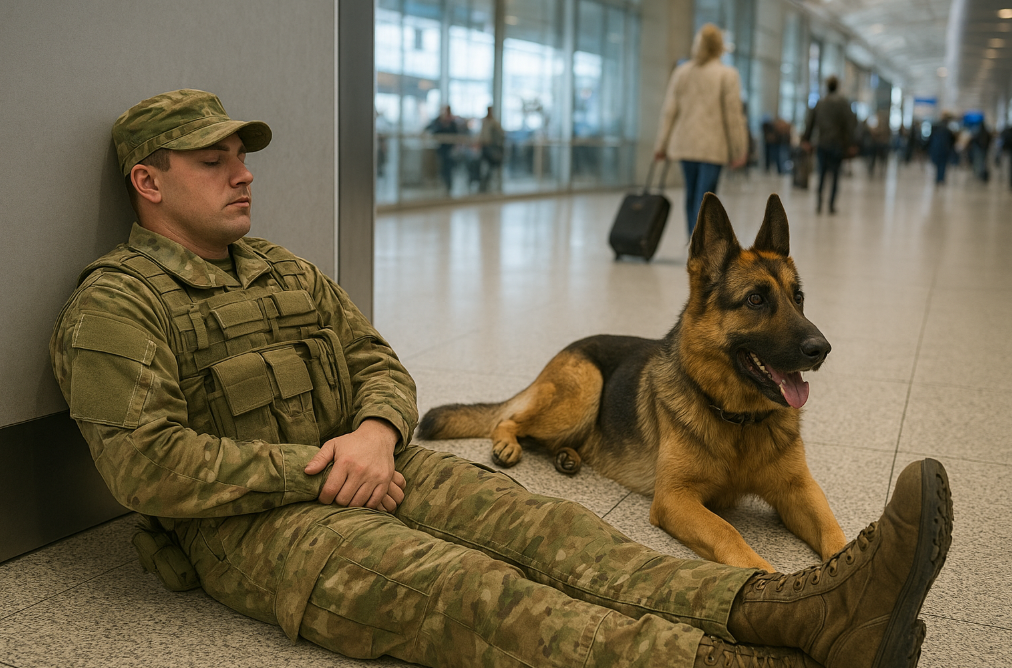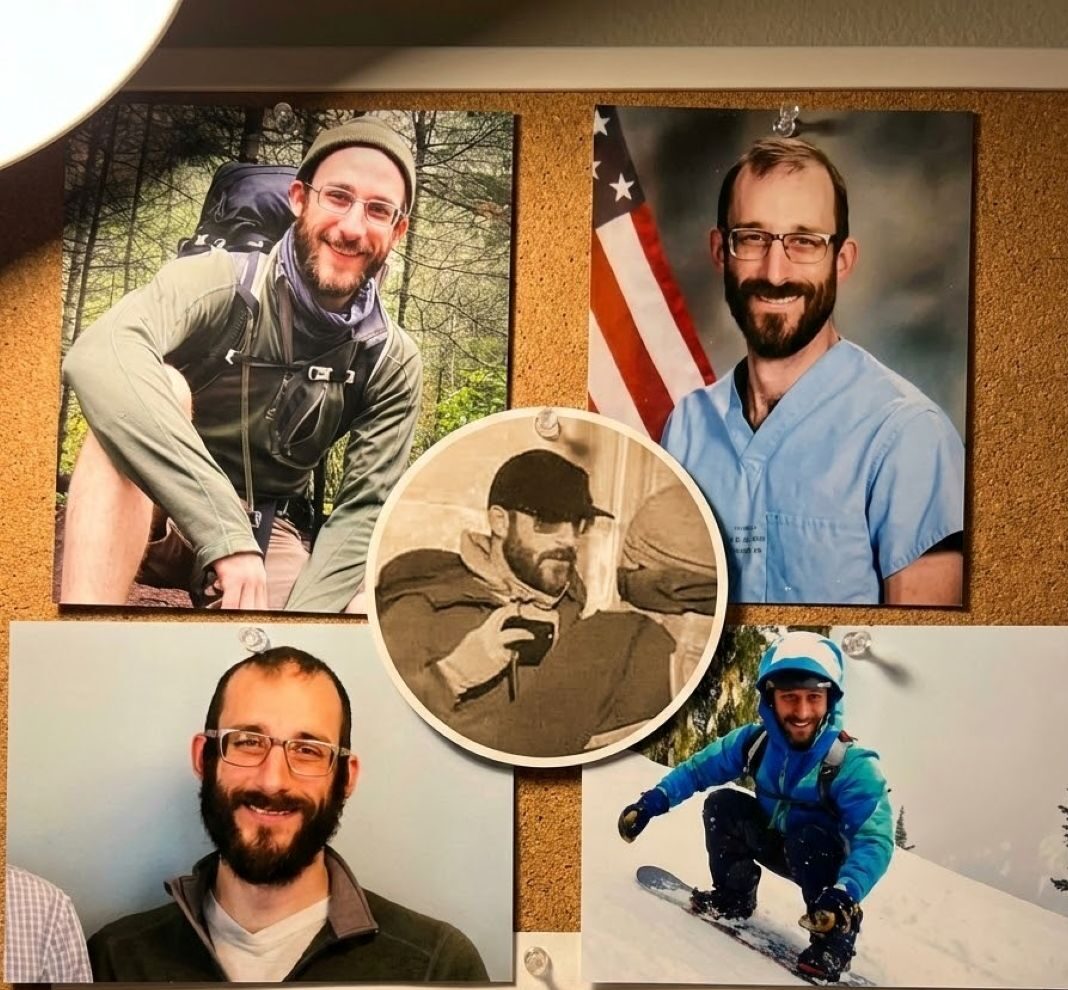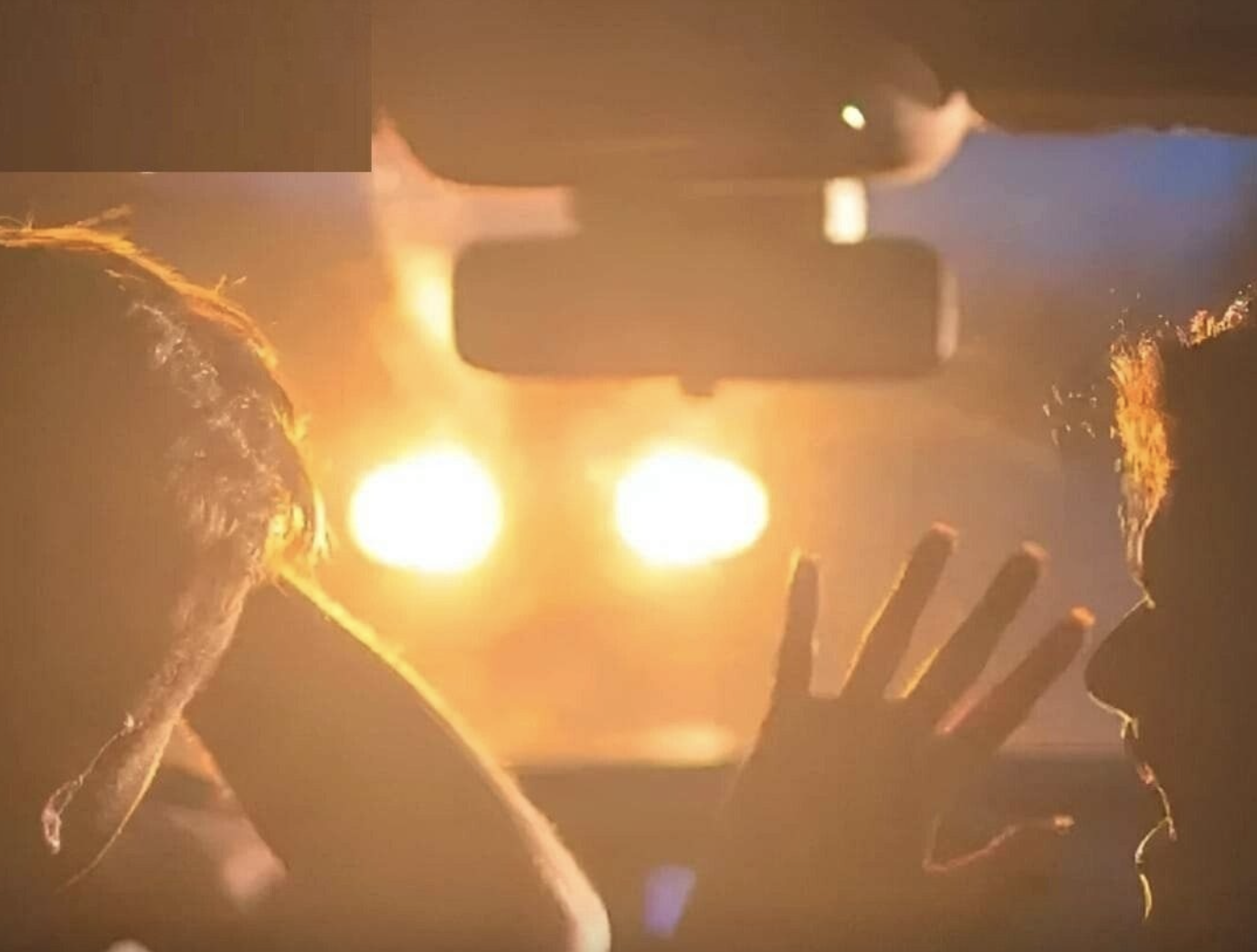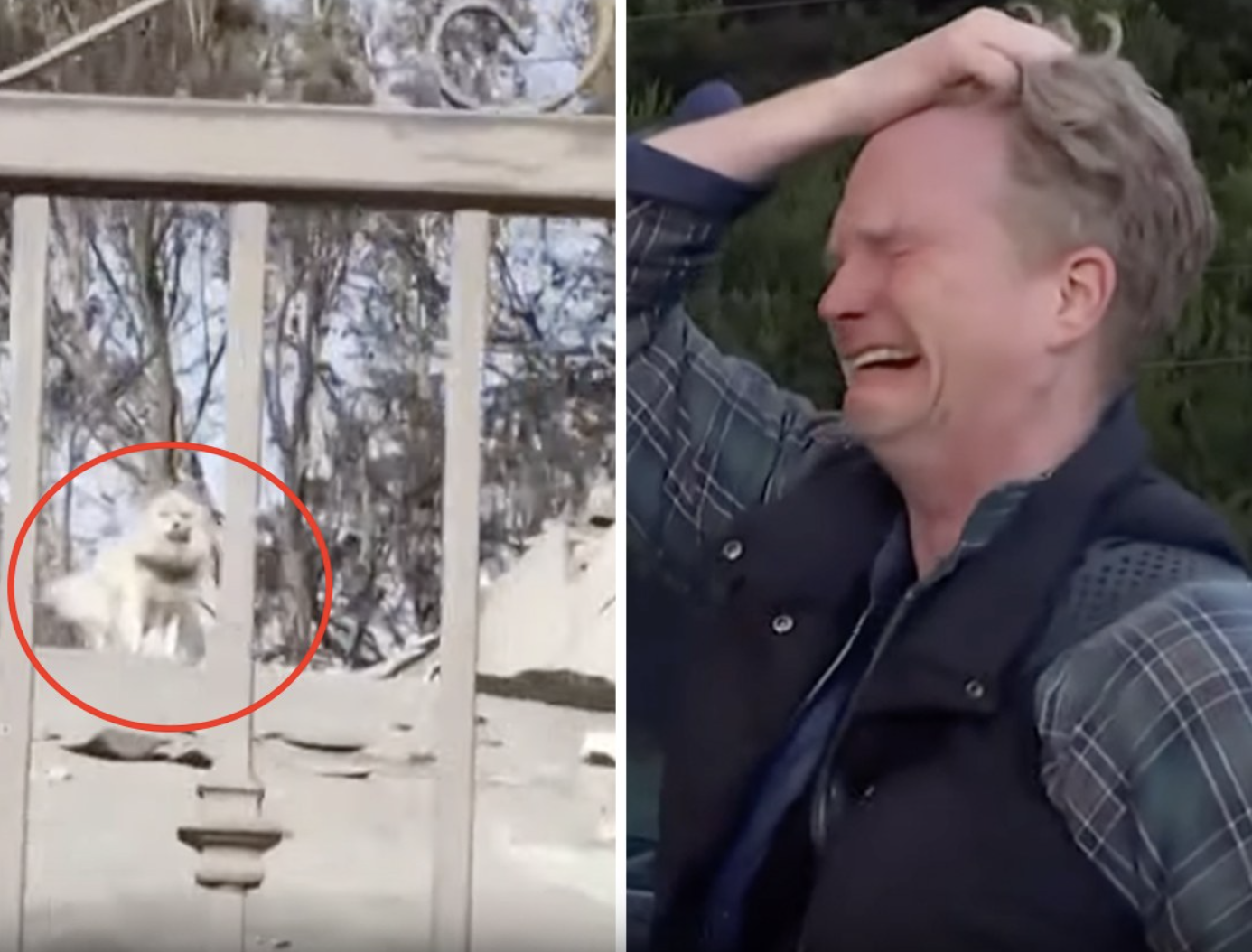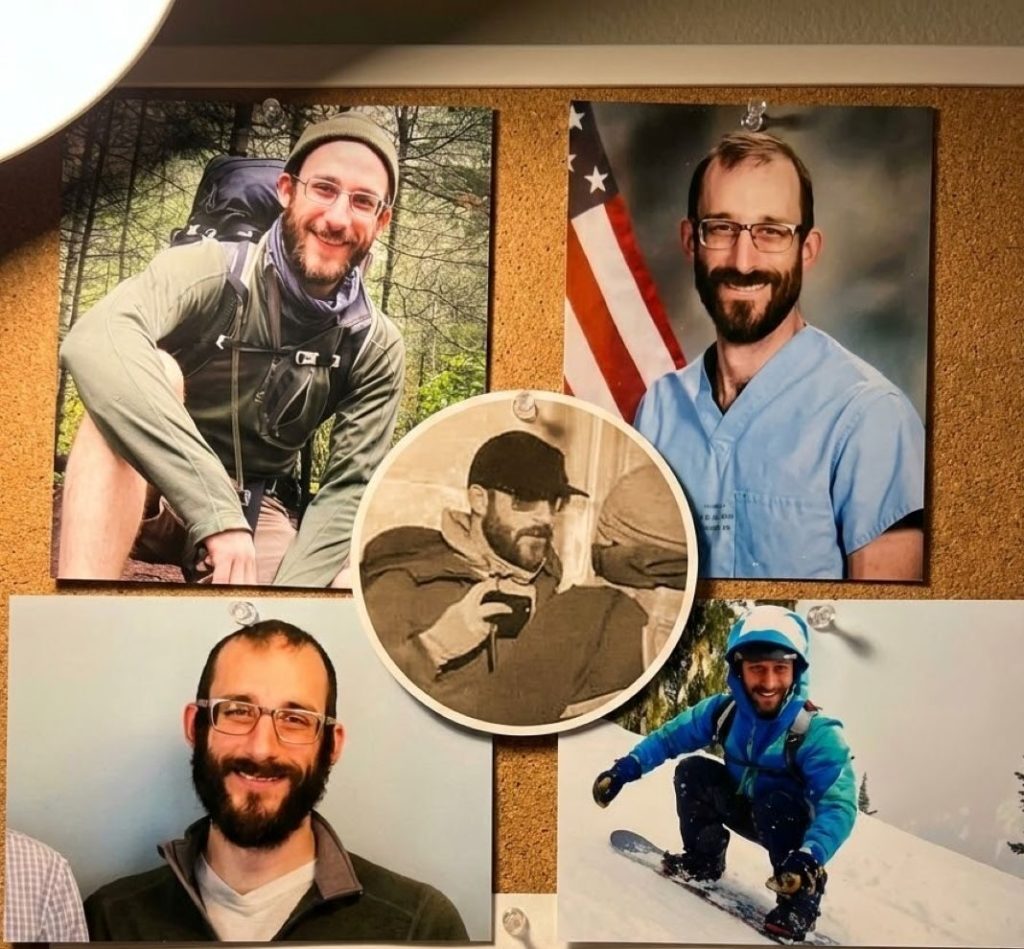Airports carry a unique rhythm—a symphony of rolling luggage, faint gate announcements, the sizzle of coffee machines, and the murmur of travelers crossing paths. Yet, on one particular afternoon at Mason International Airport, that rhythm faltered.
No booming voice or famous face caused the shift. Instead, in a tranquil corner near Gate 14, an unexpected scene drew countless eyes to a halt.
A young man, perhaps in his mid-twenties, rested curled on the sleek, chilled floor. His military uniform, though neatly pressed, bore traces of long journeys—worn cuffs, faint marks, a patch slightly frayed. His boots, unlaced at the tops, lay beside him, his hands cradling his head as a makeshift cushion. Nearby sat a rugged backpack, weathered from distant travels.
What truly captivated onlookers, though, was the dog.
A German Shepherd, poised and vigilant, stood guard beside the soldier. Its ears perked, eyes locked on the bustling crowd, every muscle taut—not with aggression, but with unwavering loyalty.
When a traveler, tugging a suitcase, ventured too near, the dog issued a deep, resonant bark—a steady, deliberate signal of guardianship. The traveler stepped back, hands raised in a quiet apology.
Murmurs rippled through the crowd.
“Is he alright?”
“Why’s he resting here?”
“That dog must be trained to serve.”
Phones emerged—some to capture the moment, others to summon assistance. People lingered, torn between respecting his space and wanting to offer aid.
Soon, two security officers in navy uniforms approached. The dog’s gaze flicked to them, its stance shifting to shield the soldier more firmly. A low growl rumbled, more felt than heard, steady and protective.
One officer, a man with a gentle presence, paused a few steps away. From his pocket, he drew a slim leather wallet, revealing a laminated ID card.
“It’s alright, friend,” he said softly, addressing the dog with a calm, almost tender tone, like soothing a startled child.
The dog’s ears twitched, its tail offering a single, cautious wag, yet it held its ground.
“I bet you’re on duty too, aren’t you?” the officer said, kneeling to meet the dog’s level, his voice warm and steady.
A woman in a gray sweater whispered nearby, “That’s a service dog.”
The pieces began to align.
The soldier had just returned from overseas deployment. Months of relentless alertness in a combat zone had left exhaustion etched into his core. Word later spread that he’d been traveling for nearly 36 hours—flights, layovers, delays piling up. Somewhere amid the chaos of terminals and tickets, his body had surrendered to sleep.
Yet his vigilance endured through his companion—the dog by his side.
The officer extended an open palm. The German Shepherd dipped its head, sniffed, then glanced at its sleeping human, as if seeking permission.
After a moment, it shifted slightly, granting the officer closer access. The gesture was subtle but profound, a silent pact between soldier and dog.
Rather than rousing the soldier, the officer signaled his colleague to keep the crowd at a distance. “Let him rest,” he said quietly.
A barista from a nearby café approached, placing a sealed water bottle just beyond the dog’s reach, a small gesture for when the soldier woke.
An airport worker arrived with portable barriers, typically used for queuing lines. They arranged them in a gentle arc around the pair—not to confine, but to shield.
The dog seemed to accept this. It settled again, eyes sweeping the terminal, ears attuned to every sound.
Time moved forward. Minutes stretched to half an hour, then an hour. The airport’s pulse continued—flights were called, travelers rushed past—but glances kept drifting to Gate 14, to the quiet sanctuary where a soldier slept and a dog stood sentinel.
Some snapped photos. Others felt it wasn’t right, choosing instead to pause, absorb the scene, and carry on.
Whispers spread about the bond between a service dog and its human. Many knew of dogs that sensed distress before it struck, calmed nightmares, or stood steadfast against threats. Seeing it unfold in person felt profound, almost reverent.
Two hours after the murmurs began, the soldier stirred. His awakening was sharp, a reflex honed by high-stakes environments. His eyes scanned the terminal, softening when they met his dog’s steady gaze.
The German Shepherd’s tail thumped once against the floor in quiet welcome.
The soldier sat up, rubbing his face. Spotting the water bottle, he murmured, “Thanks, buddy,” as he twisted it open.
Only then did he notice the barriers, the respectful crowd, the officer nearby. A faint flush crossed his face.
“Sorry,” he said, voice rough. “I didn’t mean to…” He faltered, unsure how to explain dozing off in an airport’s heart.
The officer smiled warmly. “No need to explain, son. You’ve earned it.”
The soldier reached down, scratching his dog’s ears. The Shepherd leaned into the touch with a soft exhale, as if its watch had finally eased.
Without ceremony, the soldier stood, hoisted his backpack, and adjusted his uniform jacket.
No grand gestures followed—no speeches, no applause. Just a young man and his dog walking toward the exit, side by side.
Yet as they passed, more than a few onlookers felt their eyes well up—not from sorrow, but from admiration for a soldier who had given so much, and a loyal companion who gave no less.
Though the crowd eventually scattered, the memory of that scene lingered, far outlasting any flight’s departure.
This story draws inspiration from the lives of our readers, crafted by a professional writer. Any resemblance to real names or places is coincidental. Images are for illustrative purposes only.
